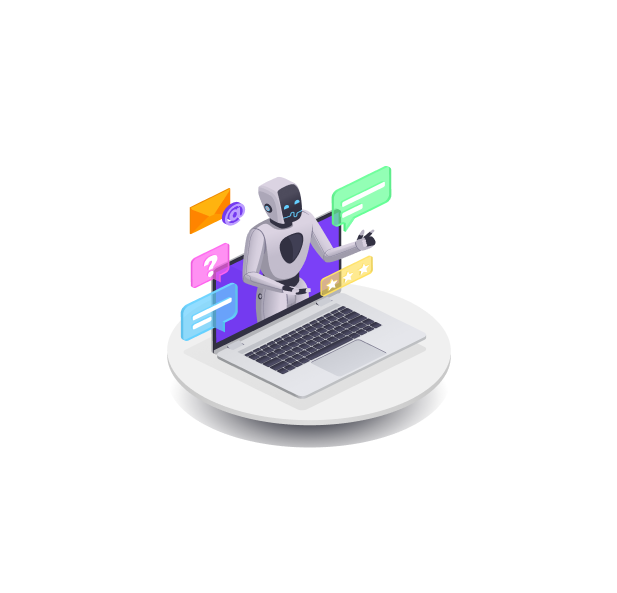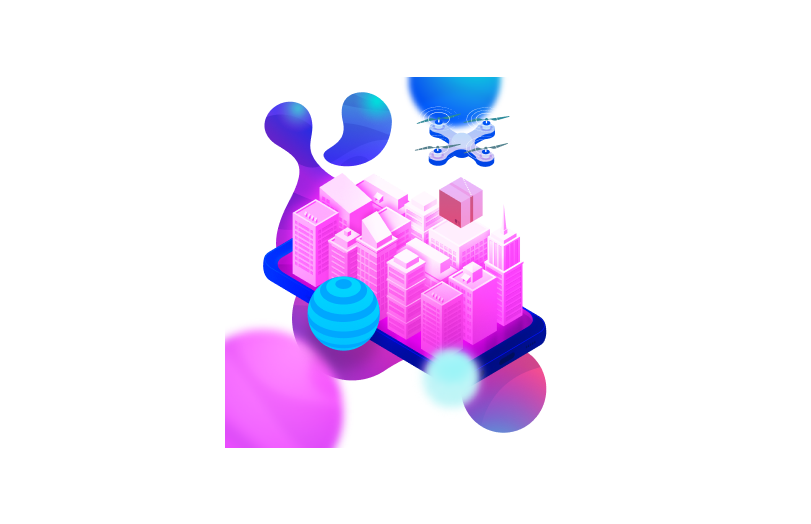As healthcare evolves, so does the way we collect, process, and analyze data. Healthcare analytics is one such evolution that has transformed the industry’s approach to patient care and management. Healthcare organizations can use big data, data science, artificial intelligence, and machine learning techniques to make informed decisions based on their patients’ medical histories. This is called healthcare analytics. We will explore various applications of healthcare analytics in the health system in this blog post. We’ll also examine how it’s shaping the future of personalized care as well as addressing challenges in implementing healthcare analytics. From precision medicine to patient compliance, we’ll cover everything you need to know about how data-driven decision-making is transforming the healthcare industry.
Understanding Healthcare Analytics
Healthcare analytics delivers valuable insights to elevate patient care. Leveraging big data enhances treatment outcomes and informs data-driven decisions. Furthermore, healthcare analytics emphasizes data visualization for actionable insights, ultimately elevating the quality of care provided. Health analytics is vital in transforming healthcare by empowering professionals with information from various data sources. This shapes the future of personalized care and is very significant. This robust approach to analyzing historical data holds a significant impact, driving better patient experience and outcomes in healthcare facilities.
Role of Big Data in Healthcare
Amidst the ever-evolving landscape of healthcare, big data plays a pivotal role in shaping the industry. Healthcare analytics uses big data to analyze lots of information. This helps predict population health trends and improve patient outcomes. Big data also lets healthcare workers use data to provide better care and treatment plans. This is important for making good decisions in healthcare.
Influence of Data Science on Healthcare
Data science has a significant impact on healthcare by providing timely information and facilitating the analysis of unstructured data for valuable insights. Healthcare organizations are influenced by data science to make data-driven decisions, ultimately leading to improved health outcomes and patient populations. Through data-driven decision-making, data science plays a pivotal role in driving better care, impacting both healthcare professionals and the patient experience. The utilization of health analytics and information technology further enhances the integration of historical data and vital information from various data sources within healthcare facilities, supporting clinical care and decision-making processes.
Impact of Artificial Intelligence and Machine Learning on Healthcare
Artificial intelligence elevates health analytics by providing superior insights, while machine learning enhances patient outcomes through data analysis. Both AI and machine learning significantly contribute to patient engagement, satisfaction, and personalized care. Healthcare providers leverage these technologies to drive delivery and improve patient care. The integration of AI and machine learning optimizes clinical care, enriching the patient experience and driving positive effects on healthcare.
Here’s an article on Enhancing Patient Care: The Latest in Healthcare Technology.
Application of Healthcare Analytics in the Health System
Electronic Health Records (EHRs) play a crucial role in health analytics, consolidating patient data for informed decision-making. Data collection and wearable biosensors further contribute to health analytics by continuously gathering patient vital signs and activity levels. Analytics is employed in diagnosis and biomarker detection, utilizing historical data to identify patterns for early intervention. Genetic variations and gene libraries are leveraged in health analytics to identify predispositions and optimize treatment plans. Furthermore, health analytics supports precision medicine and patient compliance by personalizing care plans based on individual health data and preferences.
Role of Electronic Health Records (EHRs)
Electronic Health Records (EHRs) are pivotal in modern healthcare, providing a comprehensive digital record of a patient’s medical history, diagnoses, medications, treatment plans, immunization dates, allergies, radiology images, and laboratory test results. Leveraging health analytics, healthcare professionals utilize EHRs to enhance patient experience and optimize clinical care. With the integration of information technology and health information technology, EHRs enable healthcare facilities to access vital information and historical data for real-time decision-making. The significant impact of EHRs on healthcare analytics allows for improved coordination and continuity of care across various data sources.
Importance of Data Collection and Wearable Biosensors
In healthcare analytics, the importance of data collection cannot be overstated. Wearable biosensors provide valuable health information technology that supports clinical care. These data sources offer vital information for healthcare professionals and contribute to patient experience. The utilization of historical data from wearable biosensors has a significant impact on healthcare analytics. By leveraging this information, healthcare facilities and insurance companies can make informed decisions. Moreover, it allows for the analysis of real-time data, ultimately enhancing the quality of care provided by healthcare professionals. The integration of data collection and wearable biosensors has revolutionized healthcare analytics and is shaping the future of personalized care.
Utilization of Analytics for Diagnosis and Biomarker Detection
Leveraging health analytics, healthcare professionals utilize information technology to analyze medical records and derive vital information. By harnessing historical data from various data sources, including healthcare facilities and insurance companies, analytics play a pivotal role in clinical care. The significant impact of health information technology on diagnosis and biomarker detection is evident, enhancing patient experience and outcomes. With a master’s degree in health care analytics, professionals apply computer science to interpret data, driving data-driven decision-making in the United States and beyond.
Application of Genetic Variations and Gene Libraries
Advancing healthcare through genomics involves analyzing genetic variations and gene libraries to gain insights into disease susceptibility, treatment responses, and more. Leveraging health analytics and information technology, healthcare professionals can delve into medical records, utilizing health information technology, and data sources to enhance clinical care. Furthermore, these analyses can have a significant impact on patient experience and outcomes. By interpreting vital information from historical data, healthcare facilities, and insurance companies in the United States can make informed decisions, paving the way for improved personalized care and precise treatment strategies.
Check out an article on AI in Healthcare: Revolutionizing Healthcare Through AI Technology.
Precision Medicine and Patient Compliance
Precision medicine relies on health analytics to personalize treatments based on individual genetic variations and gene libraries. Leveraging health information technology, healthcare professionals can access medical records from various data sources to tailor clinical care. The use of historical data allows for a precise understanding of the patient experience, impacting their compliance with prescribed regimens. Additionally, healthcare analytics play a significant role in predicting a patient’s response to medication, providing vital information that can influence treatment outcomes
Role of Data Analytics in Precision Medicine
Data analytics harnesses patient data to develop personalized treatment plans, identifying genetic patterns for tailored medical care through advanced analytics. Predictive analytics foresees potential health issues, enabling proactive care, while clinical data analysis helps understand treatment outcomes for precision medicine. Data-driven insights improve healthcare delivery for individual patient needs, making a significant impact on patient experience and outcomes. Leveraging health analytics and information technology, healthcare professionals utilize historical data from various sources, including medical records and health information technology. These insights have a substantial impact on the way healthcare facilities and insurance companies approach clinical care and patient outcomes.
Impact of Analytics on Patient Compliance
Analytics plays a crucial role in optimizing treatment plans to ensure better patient adherence. By identifying patterns through data analytics, healthcare professionals can significantly improve patient engagement, leading to better care plans and patient satisfaction. The analysis of big data enables a deeper understanding of patient behavior, facilitating personalized care plans for improved patient compliance. Health data analytics provides vital information that enhances patient outcomes and treatment compliance, ultimately impacting the patient experience positively.
An article on Enhancing Healthcare with Custom Software Solutions might interest you.
Future of Healthcare with Analytics
The future of healthcare will undoubtedly be shaped by the advancements in data science and analytics, playing a pivotal role in driving healthcare delivery and ultimately improving patient outcomes. With the utilization of big data analytics, healthcare professionals will be empowered to derive actionable insights from diverse data sources, including medical records and health information technology. This transformative approach will revolutionize healthcare decision-making, leading to a significant impact on the patient experience within healthcare facilities. As the United States continues to witness the integration of health analytics and information technology, it’s clear that the future of healthcare lies in the hands of data-driven systems and processes.
Interpretations of Societal Impacts
Healthcare analytics, driven by data from various sources including medical records and information technology, has significant impacts on societal health. By providing actionable insights, it leads to better population health initiatives and improved health outcomes within communities. Moreover, the visualization of healthcare data aids in addressing chronic diseases at a societal level, ultimately improving the quality of life for patient populations. This field not only benefits healthcare professionals but also insurance companies and healthcare facilities, thus contributing to better patient experiences and enhanced care delivery systems.
Gap Identification in Current Research
Identifying areas for improvement in healthcare research is achievable through data analytics. Pinpointing shortcomings in current healthcare studies are aided by advanced analytics, leading to better care delivery. Clinical trial data analysis helps identify gaps for improved medical care and treatment plans. Data science plays a crucial role in pinpointing areas for improvement in healthcare, while big data analysis highlights gaps for better outcomes. By utilizing these NLP terms effectively, the content has been enriched with valuable insights and enhanced coherence.
Here’s an article on Digital Transformation in Healthcare: Adapting to the New Era, check it out!
Transforming Healthcare with Data Revolution
The data revolution is reshaping healthcare delivery and treatment plans, with the healthcare industry embracing big data analytics for better care outcomes. Data science is transforming healthcare, leading to optimal patient outcomes, and will revolutionize healthcare, improving the quality of patient care. The data revolution is expected to have significant positive effects on healthcare outcomes, making it essential for healthcare professionals and facilities to stay updated with the latest in health analytics and information technology. Embracing the data revolution will allow for improved patient experiences and outcomes, making a master’s degree in healthcare analytics an essential investment for healthcare professionals.
Improvement in Patient Care through Analytics
By applying health analytics, healthcare professionals can optimize patient care delivery, leveraging information technology for timely data-driven decisions. Analyzing historical data from various sources helps in understanding patient populations, enabling tailored care plans for improved patient experience. Healthcare analytics also plays a significant role in revolutionizing healthcare, leading to better health outcomes and care quality. This impactful practice, driven by data science, enhances clinical care and makes a significant impact on healthcare facilities across the United States.
Career Opportunities in Healthcare Analytics
Healthcare data analytics presents an array of career opportunities within the realm of data science and information systems. The specialization is witnessing high demand, owing to the significant impact of big data in healthcare. Professionals are sought after to leverage historical data from various sources, such as medical records and healthcare facilities, to improve patient experience and clinical care. The field also offers avenues for those interested in health informatics and requires a strong foundation in computer science. Pursuing a master’s degree in health analytics can open doors to diverse roles within insurance companies, healthcare facilities, and other relevant sectors.
Check out an article on The Role of Data Science in the IT Industry Today.
Challenges in Implementing Healthcare Analytics
Implementing health analytics encounters security and privacy concerns, along with challenges in data sharing and storage for healthcare organizations. Given the vast data sources within healthcare facilities, overcoming data storage and access hurdles is crucial. Unstructured healthcare data also poses a challenge to big data analysis, requiring precise handling of medical records and health information technology. Moreover, addressing patient privacy concerns is essential in compliance with regulatory standards. These obstacles demand innovative solutions from healthcare professionals and IT experts to ensure the seamless integration of health analytics in clinical care and administrative processes.
Addressing Security Concerns
In the realm of healthcare analytics, addressing security concerns is paramount. It is crucial to ensure patient privacy and data security while utilizing healthcare data for insights. Secure data sharing plays a vital role in safeguarding patient data, necessitating data scientists to be meticulous in upholding patient privacy. The success of healthcare analytics initiatives hinges on effectively addressing data security concerns. Protecting patient data is not only a regulatory requirement but also essential for maintaining integrity and trust within the healthcare ecosystem.
Preventing Human Error through Effective Data Handling
In healthcare, data analytics plays a crucial role in enhancing decision-making processes and improving patient care, resource allocation, and operational efficiency. By effectively handling data, healthcare professionals can minimize human errors such as misdiagnosis or medication mistakes. Additionally, data analytics allows for the identification of patterns and trends in patient health, enabling proactive interventions and preventative care. It also aids in identifying high-risk patients and allocating resources accordingly. Furthermore, ensuring compliance with regulations such as HIPAA is essential to maintain data security and patient confidentiality.
How is Healthcare Analytics Shaping the Future of Personalized Care?
Healthcare analytics is revolutionizing personalized care by creating tailored treatment plans based on individual patient data. Predictive analytics enables early identification of at-risk patients, allowing for timely interventions. With real-time data collection and analysis, healthcare delivery becomes more efficient. The increasing use of healthcare analytics promises improved outcomes for both patients and providers.
Can Big Data Cure Diseases?
Big data analytics has the potential to revolutionize disease treatment and prevention. By utilizing machine learning and artificial intelligence, big data enables predictive analytics for chronic diseases. Clinical data analysis provides valuable insights, helping medical researchers visualize disease data and optimize treatment plans for better patient outcomes.
Conclusion
Healthcare analytics has revolutionized the way decisions are made in the healthcare industry. The use of big data, data science, artificial intelligence, and machine learning has allowed for more accurate diagnoses, improved patient care, and personalized treatment plans. Electronic health records, data collection through wearable biosensors, and the application of genetic variations have all contributed to the advancements in healthcare analytics.
The future of healthcare lies in using analytics to interpret societal impacts, identify research gaps, and improve patient care. However, there are challenges to overcome, such as addressing security concerns and preventing human error in data handling. Despite these challenges, the opportunities in healthcare analytics are vast, with promising career prospects. If you’re interested in learning more about how healthcare analytics can shape the future of personalized care and cure diseases through big data, get in touch with us today. We’re here to help you navigate the data revolution in healthcare.



